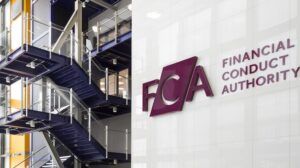The European Supervisory Authorities have issued a definition of greenwashing applicable to banking, insurance, pensions and financial markets, and highlighted some of the risks that could lead to it.
Greenwashing is described by the Authorities “as a practice where sustainability-related statements, declarations, actions, or communications do not clearly and fairly reflect the underlying sustainability profile of an entity, a financial product, or financial services”.
It continued: “This practice may be misleading to consumers, investors, or other market participants.”
This definition of greenwashing has been agreed jointly by the European Banking Authority (EBA), the European Securities and Markets Authority (ESMA) and the European Insurance and Occupational Pensions Authority (EIOPA) – commonly known as the European Supervisory Authorities (ESAs).
The supervision bodies also describe how greenwashing can happen in practice.
“Sustainability-related misleading claims can occur and spread either intentionally or unintentionally and in relation to entities and products that are either within or outside the remit of the EU regulatory framework,” they stated.
A report published by ESMA alongside the definition highlighted areas at a high risk of greenwashing.
One of these is pledges by companies about future ESG performance, in particular net-zero commitments and so-called “transition plans”, which are exposed to greenwashing risk.
Ensuring the quality of such disclosures is “key to supporting the development of transition finance”, the report said.
While being an essential part of corporate sustainability reporting, forward-looking information is particularly exposed to greenwashing risk due to the significant reliance of this type of information on judgements and projections, which, when misstated, may provide misleading information, the report added.
The report’s findings show misleading ESG claims may relate to all key aspects of the sustainability profile of a product or an entity, from governance aspects to sustainability strategy, targets and metrics or claims about impact.
Greenwashing causes
Greenwashing is the result of multiple interrelated drivers, the report found.
Market participants across the sustainable investment value chain (SIVC) face challenges in implementing the necessary governance processes and tools that support high-quality sustainability disclosures and transition efforts.
In this context, market participants also have difficulties in producing and accessing relevant, high-quality sustainability data.
In addition, a fast-moving regulatory framework has created implementation challenges for both market participants and for domestic regulators, and highlighted the need to build sustainability expertise.
To mitigate greenwashing risks, the ESMA report stated, market participants across the SIVC have to live up to their responsibility to make substantiated claims and communicate on sustainability in a balanced manner.
Comprehensibility of sustainability disclosures to retail investors needs to be improved, it added, including by establishing a reliable and well-designed labelling scheme for financial products.
Finally, the regulatory framework needs to gain in maturity, key concepts need to be clarified and sustainability impact or engagement better integrated.
The ESAs will publish final greenwashing reports in May 2024 and will consider final recommendations, including on possible changes to the EU regulatory framework.
Although this greenwashing definition is from the ESAs, they pointed out, given the integrated nature of the financial system, they work in a coordinated manner to address greenwashing with domestic regulators.
This is in order to “meet expectations from stakeholders to ensure consumer and investor protection, support market integrity and maintain a trusted environment for sustainable finance”.








